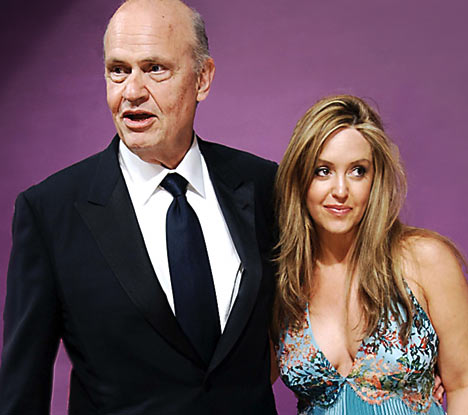Reverse Snob Appeal
I used to believe that electing a president should partly be a popularity contest. Who’s the guy I’d most like to have a drink with?
The problem, of course, is that I’m never going to socialize with the president of the United States. Instead, my criteria should revolve around things that will actually or plausibly affect me, like Social Security reform, the death tax and net neutrality.
Yet the reverse snobbery of those who champion the beer primary was lost on me until I read this op-ed, by the editor of the Nashville Scene, which compares Al Gore to Fred Thompson. Here’s the nut (and here’s a quick question for this ilk: name a northeastern liberal who passes the beer primary?):
Thompson never came off looking like a cardboard cutout—the way Gore did as a presidential candidate—because there was a kernel of truth to the image. Who could imagine a teenage Gore driving a pickup along Massachusetts Avenue on his way to the privileged academic bastion of St. Albans? But young Freddie Thompson probably did kick back in a Chevy, drinking a beer with his buds, after a Lawrence County High School football game. As Tennessee columnist Frank Cagle once put it, Thompson fit that truck in a way that Michael Dukakis never fit the tank.
So I’m not misunderstood, character matters a great deal. But in electing a person whose powers include first-strike capabilities, considerations as to whether he went to prep or public school, whether his shirt is a hand-me-down or embroidered with a brand-name logo, or whether he avoids multisyllabic words because he doesn’t know many, are frivolous.
To put it another way, who would you rather have as a boss: a bombshell of average intelligence or an overweight nerd? One’s incompetence might result in your being laid off, whereas the worst that can happen with the other is that your circle of people to flirt with in the office shrinks by one person.
(Obligatory pop-culture reference, from Seinfeld:
JERRY: “So this woman you plan on hiring, is she going to be in the spokesmodel category?”
GEORGE: “Sure. I could go the tomato route. But I’ve given this a lot of thought Jerry. All that frustration. I’ll never get any work done. So I’m doing a complete 360 [sic]. I’m going for total efficiency and ability.”)
In the end, charisma and authenticity should be luxuries in politics.
Related: A few days ago, I wondered if the beliefs of a spouse are relevant in voting for a politician. Last month, I examined whether politicians should know the price of a gallon of milk.



Scholars “use an intellectual scalpel…